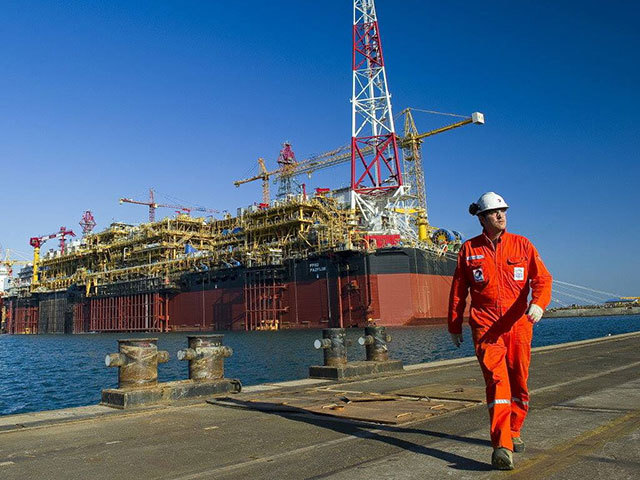
Total is preparing a three-year, company-wide plan to cut costs after second-quarter profit fell 12% amid record low production and a slump in refining margins.
Profit excluding changes in inventories dropped to $3.2billion from $3.58billion a year earlier, the company said on Wednesday.
Production slid 10% to 2.1million barrels of oil equivalent a day.
The explorer kept its dividend unchanged from the first quarter, at 61 euro cents a share.
“The cost-cutting program is being finalized and we will give the first numbers in September” for 2015 through 2017, chief financial officer Patrick de la Chevardiere said.
All divisions will be affected including headquarters.
The cost-cutting plan will come in addition to chief executive Christophe de Margerie’s asset sales and a lowering of capital spending. As the biggest refiner in western Europe, where it operates eight plants, Total has been hurt by lower crude-processing margins caused by overcapacity.
“Refining margins are very low,” de la Chevardiere said. During the quarter the company lowered output to a minimum at certain European crude-processing sites because “the more we produced the more we were losing money.”
European refinery margins fell to $10.90 per metric ton of crude processed, from $24.10 a ton a year earlier, though up from $6.60 a ton in the first quarter, Total said earlier this month.
Oil output fell in the second quarter after the loss of concessions in Abu Dhabi, “exceptionally heavy” maintenance on exploration and production installations and strife in Libya, Total said.
“The production in the second quarter was an all-time low,” de la Chevardiere said. Maintenance in the North Sea, Nigeria and Thailand was partly to blame.
Total is counting on new projects to increase its oil production to 2.6million barrels a day in 2015 and to about 3million barrels two years later.
One of the projects was the giant Kashagan installation in Kazakhstan.
The asset, held 16.8% by the French company, was halted after producing its first oil in September. It will remain idled as 180 kilometers (112 miles) of pipelines are replaced, operator North Caspian Operating Company said in April, which could take until 2016.
The Clov offshore project in Angola has reached production of 80,000 barrels a day and is expected to double this “before the end of the year,” de la Chevardiere said, adding that at full output, it will generate $1.5billion in cash a year.
Total is also expecting output from Laggan-Tormore in the North Sea and Ofon Phase 2 in Nigeria to start up by the end of 2014, he said.
Asset sales this quarter totaled $2.5billion, de la Chevardiere said, binging the total to “well within” a target of $15billion to $20billion from 2012 to 2014.
This included the sales of Total’s 10% stake in Azerbaijan’s Shah Deniz gas project, its liquid petroleum gas distribution business in France and its South African coal unit for $472million.
The sale of a 20% stake in Nigeria’s offshore Usan field to Sinopec was canceled by the Chinese company and Total has restarted efforts to sell the asset, de la Chevardiere said.
The $2.5billion deal was announced in November and was expected to have been completed by the end of last year.
“Their reasons are their own and I don’t know them,” he said.
Recommended for you
